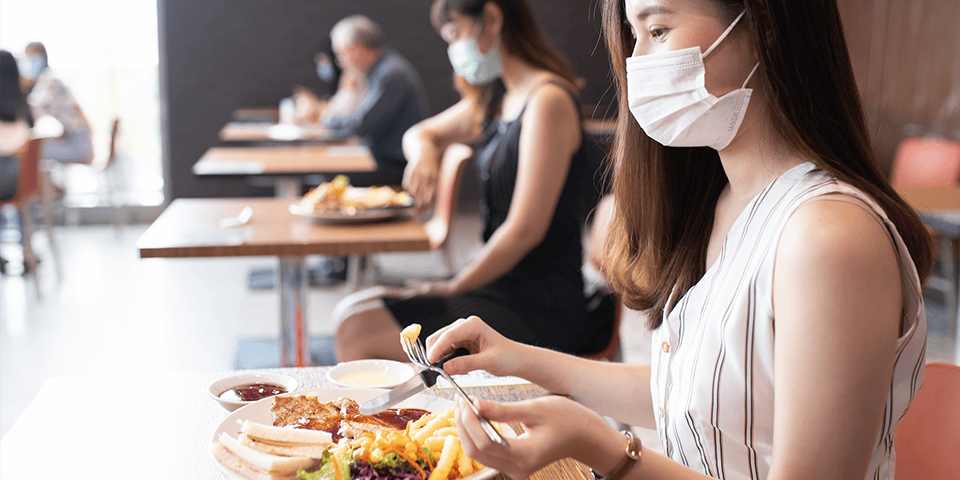Exploring Dietary Intake Behaviors Related To The Covid-19 Lockdown

In 2019, the Coronavirus disease (COVID-19) evolved into a worldwide pandemic requiring us to quarantine and isolate ourselves to protect ourselves from catching and spreading the virus. As the world went into isolation for extended periods, many secondary aspects of our lives were impacted, including interrupted schedules and routines, significant changes in our social activities and experiences, and changes in our dietary intake patterns. The list of physical and mental health implications of these impacts is varied and significant and has resulted in both positive and negative effects on our health.
A recent scoping review by Bennett et al. in 2021 reviewed studies that explored the impact of people’s dietary intake changes within the first wave of the COVID-19 lockdown. Findings were divided into four themes: 1) dietary patterns, 2) favorable dietary habits, 3) unfavorable dietary habits, and 4) others (physical health factors).
Findings showed that two prominent dietary intake patterns changed during the pandemic, including an increase in snacking and meal numbers.
The researchers in the study categorized the increase in snacking as an unfavorable dietary habit. Most of the snacks consumed during the pandemic involved empty-calorie foods, which were associated with the need for comfort and reducing momentary anxiety levels from the pandemic. This unfavorable dietary habit suspends interest in making healthful food choices because it redirects an individual’s focus on nurturing their emotions (Shen et al., 2020).
Most of the snacks consumed during the pandemic involved empty-calorie foods, which was associated with the need for comfort food.
The authors state that although there is much evidence mentioned about the adverse effects of the pandemic, there is some information that shows favorable dietary intake habits arising from being in isolation. Studies have shown that lockdown has decreased the amount of fast-food consumption. Instead, many people have been obliged to make food at home. Isolation has also reduced the consumption of alcohol for those who often drink while socializing. The reduced access to unhealthy foods and drinks has created favorable dietary habits for some individuals as cooking at home increased. However, even if positive dietary intake patterns and habit outcomes have arisen from being in lockdown, this review identifies more undesirable effects on peoples’ health during the COVID-19 pandemic.
Isolation has also reduced the consumption of alcohol for those who often drink while socializing.
To see more studies examining the influence of Covid-19 and dietary intake, visit the CNP Research Library Diet and COVID-19 Research Category. Thank you to CNP Intern Hashmin Sajjan for contributing to this blog post!
References
Al-Musharaf S. (2020). Prevalence and Predictors of Emotional Eating among Healthy Young Saudi Women during the COVID-19 Pandemic. Nutrients, 12(10), 2923. https://doi.org/10.3390/nu12102923
Bennett, G., Young, E., Butler, I., & Coe, S. (2021). The Impact of Lockdown During the COVID-19 Outbreak on Dietary Habits in Various Population Groups: A Scoping Review. Frontiers in Nutrition, 8, 626432–626432. https://doi.org/10.3389/fnut.2021.626432
Shen, W., Long, L. M., Shih, C. H., & Ludy, M. J. (2020). A Humanities-Based Explanation for the Effects of Emotional Eating and Perceived Stress on Food Choice Motives during the COVID-19 Pandemic. Nutrients, 12(9), 2712. https://doi.org/10.3390/nu12092712








Leave a comment